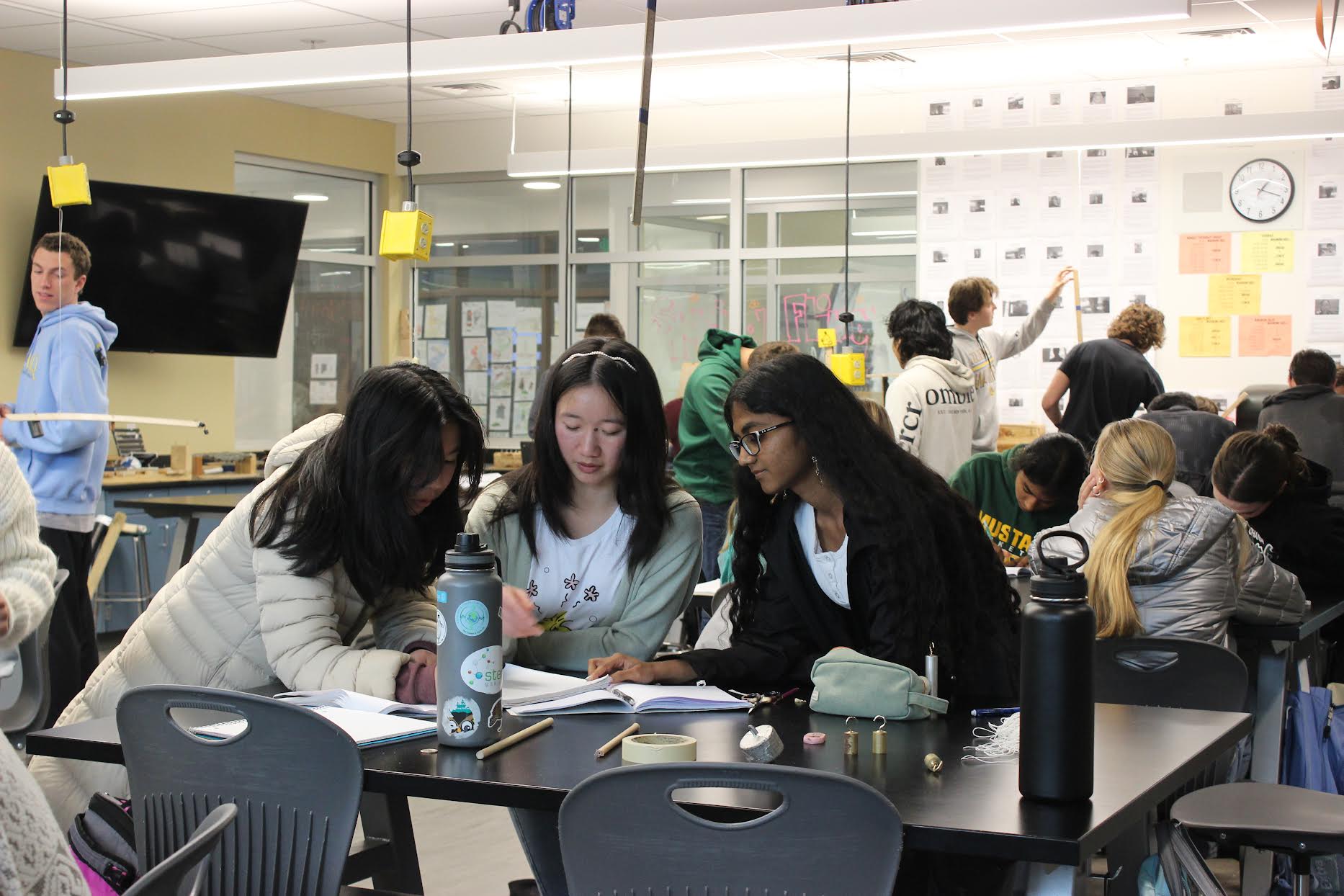As the end of the school year approaches, many AP teachers have begun preparing their students for the AP exams. AP exams cause stress because students have been spending the whole year preparing for these challenging tests. For students who have never taken an AP class before, this can bring up new anxieties about how it works, and how to study for it.
“The stress and pressure of taking this really long test is the biggest challenge for students taking the AP test,” counselor Caroline Hoj said.
The stress and pressure of taking this really long test is the biggest challenge for students taking the AP test.”
– Caroline Hoj
Counselor
Taking an AP exam gives college credit to students who pass. Scoring well on the exams also looks great on college applications, especially with the SAT and ACT becoming increasingly optional. While this may seem overwhelming, there are many strategies that can help students put their best foot forward while preparing to take it.
Many people feel that spreading out their studying over time, rather than cramming, is one of the most important components of ensuring students will do well.

(From left) Senior Emerald Lin, and juniors Catherine Louie and Blossom Pinto study for the AP physics exam.
“The willpower to start studying earlier is usually the biggest hurdle to students,” AP European History teacher Robert Watson said. “They try to cram at the end and that isn’t as effective as pacing yourself and working through your review methodically.”
While using notes from class can be helpful, there are many other ways to study that can be more useful or more efficient.
“Khan Academy and College Board both have review units for taking the test,” Hoj said. “Use some kind of system for studying, not just using your notes, but creating flash cards or a Quizlet, or using a structured template.”
One way to make studying easier is to do it in a group or with someone else.
“I think everybody should get a study group going so they can put their heads together on content and to commiserate and encourage,” Watson said.
Senior Allison Branch explains that one of her biggest pieces of advice for studying is to find the key ideas, rather than focus on everything.
“The earth doesn’t open up and swallow you if you don’t pass; everything is going to be okay.”
– Robert Watson
AP European History Teacher
“When I took both AP Euro and APUSH, I definitely worried a little too much about the specifics than I needed to, but there’s definitely key concepts to memorize,” Branch said.
Especially for students who have never taken an AP test before, it can not only be hard to understand how to study, but how to take the test. Branch explains one of her biggest mistakes on her first AP test was figuring out the timing.
“When I was taking the AP European History test, I didn’t really have any idea of timing for each section, despite there being a timer on the screen, so I kept rushing and finishing early,” Branch said. “I definitely should’ve taken my time and gone over everything, rather than submitting it to get it over with.”
Branch gave another tip, which was that it is okay to guess on the AP test sometimes.
“My advice for a subject you aren’t confident in is honestly just fill out everything to the best of your ability,” Branch said. “I’ve done a lot of guessing and, for the most part, I think that intuition will serve you well if you’ve been paying attention in class.”
While AP tests can feel stressful, it’s important to remember that it’s not the end of the world if you don’t pass. Watson reminds students passing is not everything.
“The most important thing to remember is that how you do on an AP Exam is not a measure of your intelligence or worth,” Watson said. “The earth doesn’t open up and swallow you if you don’t pass; everything is going to be okay.”





































